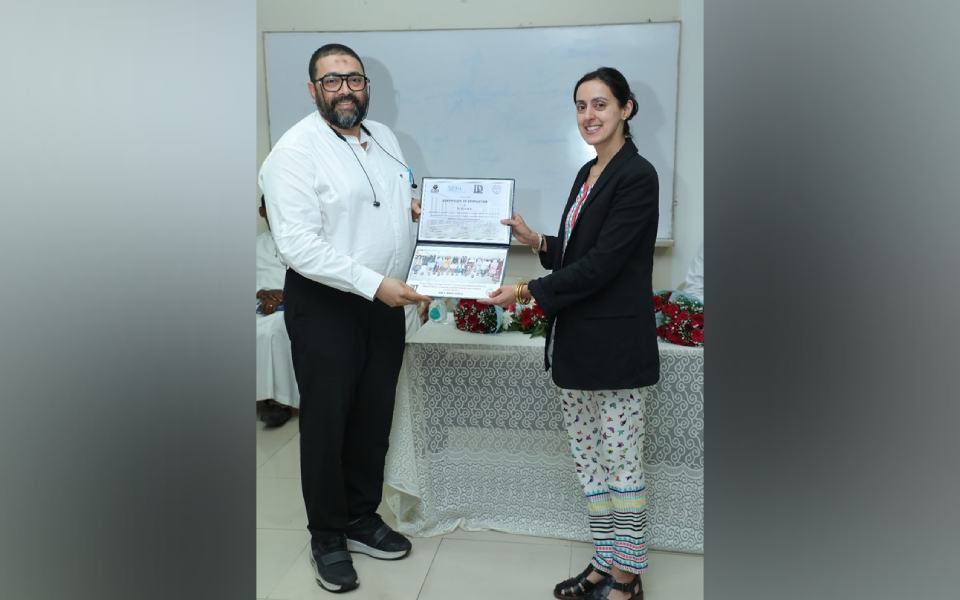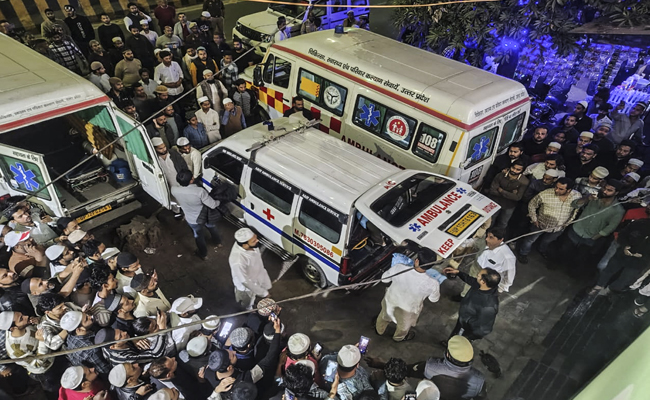Mangalore, Karnataka: Antimicrobial resistance (AMR) is emerging as one of the most critical public health challenges of our time, threatening to undo decades of progress in treating infectious diseases. The overuse and misuse of antibiotics, not just in human healthcare but also in the veterinary and livestock industries, have led to a rapid rise in resistant bacteria. This growing crisis demands immediate and concerted action, especially in countries like India, where the situation is particularly alarming.
In India, the high burden of infectious diseases, combined with widespread and often unregulated access to antibiotics, has created a perfect storm for the development and spread of antimicrobial resistance. Antibiotics are frequently prescribed without proper diagnosis, and self-medication is common. Moreover, in the veterinary field, antibiotics are extensively used in the livestock industry, often as growth promoters, further exacerbating the problem. The result is a dangerous increase in drug-resistant infections, which are becoming harder to treat and leading to higher mortality rates.
The World Health Organization (WHO) has identified antimicrobial resistance as one of the top ten global health threats, warning that if no significant action is taken, AMR could cause millions of deaths annually by 2050. The situation in India mirrors this global trend, with resistant infections already leading to prolonged hospital stays, increased medical costs, and higher death rates.
Given the severity of the issue, there is an urgent need to train healthcare professionals in antimicrobial stewardship—a set of coordinated strategies to improve the use of antibiotics, promote responsible prescribing practices, and reduce the spread of resistance. Antimicrobial Stewardship Programs (ASP) are essential in ensuring that antibiotics are used judiciously, with the right drug, at the right dose, for the right duration. These programs play a crucial role in preserving the effectiveness of antibiotics, safeguarding public health, and improving patient outcomes.
Recognizing the importance of antimicrobial stewardship, Dr. Haroon H, a consultant in internal medicine at KMC Hospital, Mangalore, has recently completed the Certification of Antimicrobial Stewardship for Healthcare Professionals. This certification, endorsed by the Infectious Diseases Society of America (IDSA) and the Clinical Infectious Disease Society of India (CIDS), equips healthcare professionals with the knowledge and skills needed to implement effective ASPs in their institutions.
In a statement, Dr. Haroon expressed his concern about the rising threat of antimicrobial resistance, emphasizing the need for healthcare workers to lead the fight against this global health crisis. "The misuse and overuse of antibiotics in both human healthcare and the veterinary sector are driving the alarming rise of drug-resistant infections. It's essential that we, as healthcare professionals, take urgent action to address this issue," he said.
Dr. Haroon also highlighted the importance of educating both patients and healthcare providers about the dangers of antibiotic misuse and the need for responsible prescribing practices. He believes that by promoting awareness and implementing robust antimicrobial stewardship programs, healthcare institutions can play a pivotal role in curbing the spread of resistance.
Throughout his training, Dr. Haroon had the opportunity to learn from some of the leading experts in the field, including Dr. Priscilla Rupali and Dr. Balaji Veeraraghavan from Christian Medical College (CMC), Vellore, and Dr. Priya Nori from the United States. These interactions, according to Dr. Haroon, greatly enriched his understanding of how to effectively implement antimicrobial stewardship practices in a clinical setting.
In recognition of his achievement, KMC Hospital took to its official X (formerly Twitter) handle to congratulate Dr. Haroon. The hospital wrote, "Congratulations to Dr. Haroon H., Asst Prof in the Dept of Medicine, for successfully completing the Certification in Antimicrobial Stewardship for Healthcare Professionals, endorsed by the Infectious Diseases Society of America and @CidsIndia."
Dr. Haroon, who also serves as the Editor of the Indian Journal of Geriatric Care and is a national executive committee member of the Geriatric Society of India, reiterated the importance of collective efforts in addressing the AMR crisis. He urged all healthcare professionals to embrace their roles as stewards of antimicrobials to protect patients, preserve the effectiveness of antibiotics for future generations, and mitigate the impact of this global health challenge.
"The fight against antimicrobial resistance is not just about one person’s achievement but about the collective responsibility we all share as healthcare providers. By working together, we can safeguard public health and ensure that antibiotics remain a powerful tool in our medical arsenal for years to come," Dr. Haroon concluded.
Let the Truth be known. If you read VB and like VB, please be a VB Supporter and Help us deliver the Truth to one and all.
Shimla (PTI): The management of the Atal Institute of Medical Super Specialities (AIMSS) here on Tuesday issued show-cause notices to the sanitation supervisor and sanitation workers after a dog was seen carrying an amputated human leg in its mouth near the hospital, officials said.
A video of the incident, which took place on Tuesday and triggered panic among people, is doing the rounds on social media. When the hospital security staff tried to take away the limb from the dog, it got aggressive and fled, leaving behind the amputated leg.
Taking cognisance of the incident, the hospital authorities ordered the constitution of a fact-finding committee comprising Nursing Superintendent Leelawati, Nodal Officer (Biomedical Waste) Rajesh Verma, and Matron Leela Bodh, the officials said.
The committee was tasked with investigating the matter, fixing responsibility and identifying lapses to prevent recurrence of such incidents. It was asked to submit its report by 5 pm on Tuesday.
According to the committee's report, a patient's leg was amputated above the knee on February 19 under the Cardiothoracic and Vascular Surgery (CTVS) Department.
"The amputated limb was properly packed in a biomedical waste bag and stored in the Biomedical Waste (BMW) complex at AIMSS for disposal by the authorised agency, Enviro Engineers," it said.
"However, on the night of February 21, while shifting biomedical waste to the BMW complex, sanitation workers reportedly left the door of the waste complex open and unattended. It is suspected that during this time, a stray dog managed to pull the amputated limb out of the packed waste bag. The next day, an empty waste bag was found outside the BMW complex," it added.
The report further revealed that sanitation workers attempted to trace the missing limb but were unsuccessful. It was later recovered from the dog.
Based on the report, the hospital management has sought explanations from the sanitation supervisor and sanitation staff and stated that further disciplinary action will be taken based on their responses, the officials said.
Additionally, the sanitation contractor has been directed to strictly adhere to biomedical waste management protocols and the disposal agency has been instructed to ensure timely clearance of biomedical waste from the hospital premises in accordance with prescribed guidelines, they said.





